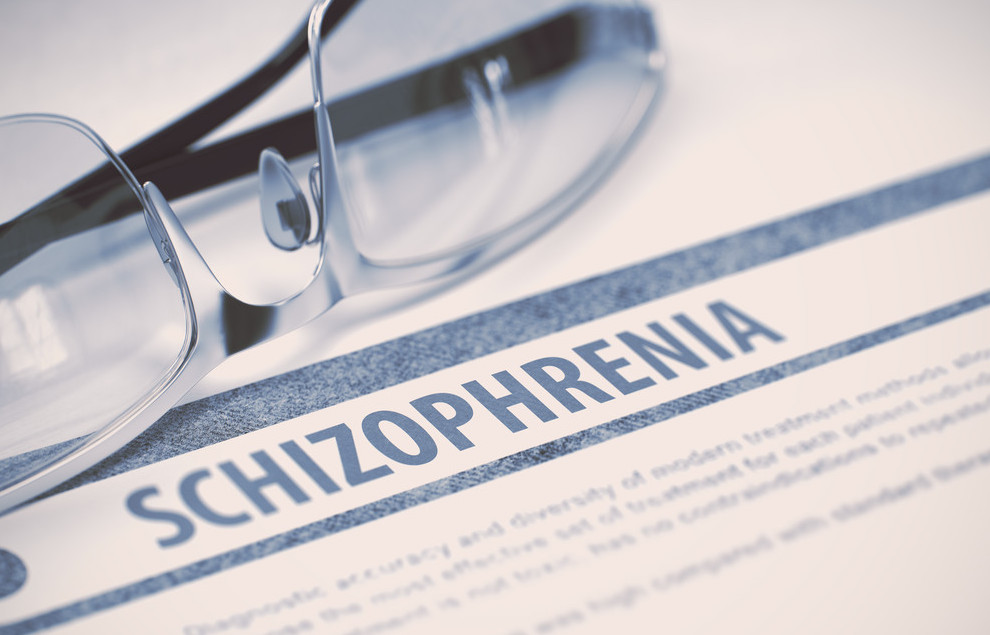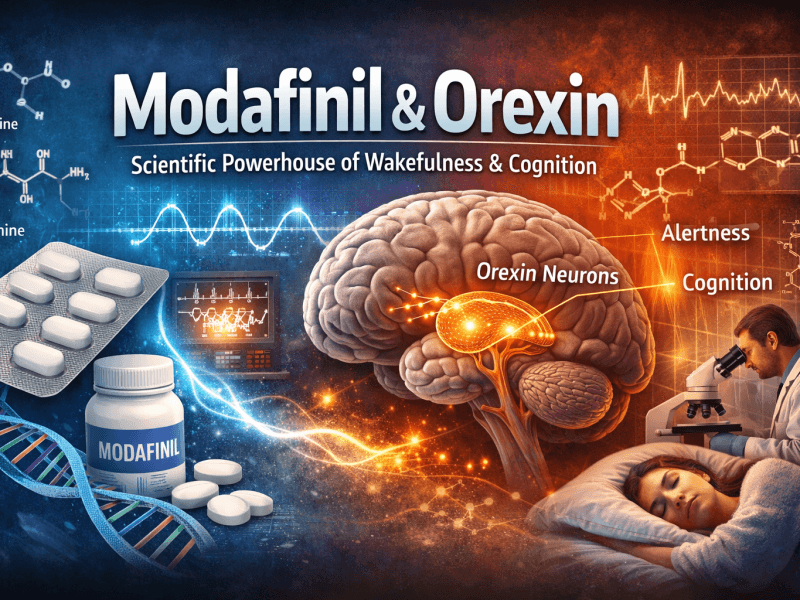Last Updated on 21/01/2026 by James Anderson
Modafinil is often hailed as a wakefulness-promoting agent, a productivity booster, and even a “smart drug” in pop culture. But what happens when we explore its use in a medical context specifically, in people living with schizophrenia?
Schizophrenia is a complex mental disorder that often leaves people struggling with reality, emotional flatness, and cognitive confusion. What if a pill like Modafinil could help ease some of those challenges?
Let’s unpack this unconventional but intriguing idea.
Understanding Modafinil
History and Development
Originally developed in the 1970s in France, Modafinil was intended to treat narcolepsy. It gained FDA approval in 1998 under the brand name Provigil.
Common Uses and Mechanism of Action
Modafinil is not your typical stimulant. It doesn’t work like amphetamines. Instead, it tweaks various neurotransmitters especially dopamine, norepinephrine, and histamine to promote alertness and mental sharpness without the crash that comes with caffeine or Adderall.
Why It’s Considered a “Smart Drug”
Tech entrepreneurs, students, and even military pilots have used Modafinil off-label to boost focus and reduce fatigue. Its reputation as a cognitive enhancer has earned it the nickname “Limitless Pill.”
Schizophrenia: A Deeper Dive
What Is Schizophrenia?
Schizophrenia is not just “split personality.” It’s a chronic brain disorder that affects how a person thinks, feels, and behaves.
Core Symptoms
Positive Symptoms
These include hallucinations (like hearing voices), delusions, and disorganized speech.
Negative Symptoms
This is where Modafinil might shine. Negative symptoms include emotional flatness, lack of motivation, and social withdrawal.
Cognitive Symptoms
Problems with memory, attention, and decision-making are common and often under-addressed by traditional medications.
Traditional Treatment Approaches
Antipsychotic medications are the go to. While they help with hallucinations and delusions, they often do little for cognitive and negative symptoms.
Modafinil’s Potential Role in Schizophrenia
Cognitive Enhancement in Schizophrenia
Modafinil may help sharpen focus and memory. Several studies have shown modest but notable improvements in tasks involving working memory, especially in people with schizophrenia.
Addressing Negative Symptoms
One of the most frustrating aspects of schizophrenia is the emotional “numbness.” Modafinil’s stimulant-like properties could potentially reignite motivation and engagement.
Improving Wakefulness and Daily Functioning
Fatigue is a common issue sometimes due to the illness itself, sometimes due to medications. Modafinil’s ability to reduce daytime sleepiness can translate into better routine, hygiene, and activity levels.
Scientific Studies and Clinical Trials
Key Findings
Some small clinical trials suggest Modafinil improves cognitive function and reduces negative symptoms when added to standard antipsychotic treatments.
Limitations and Gaps in Research
Results are not always consistent. Sample sizes are small, and long-term studies are lacking.
Real World Case Examples
Many psychiatrists report “functional improvements” in patients using Modafinil things like returning to work or resuming social activities.
Modafinil vs Traditional Antipsychotics
Key Differences
Antipsychotics target dopamine in a way that reduces psychosis. Modafinil, on the other hand, boosts dopamine just enough to enhance alertness without tipping into mania or psychosis (in most cases).
Can They Be Combined?
Yes, and that’s the point. Modafinil is rarely used alone. It’s often added as an “adjunct” therapy.
Side Effects Comparison
While antipsychotics can cause weight gain, sedation, and tremors, Modafinil’s side effects are milder: insomnia, headache, maybe a bit of jitteriness.
Potential Risks and Considerations
Dependency and Misuse
Though less addictive than Adderall, misuse can happen especially if used without medical supervision.
Interactions with Other Medications
Modafinil can mess with how other drugs are metabolized. For example, it may reduce the effectiveness of birth control pills.
When Not to Use Modafinil
People with a history of mania, severe anxiety, or heart problems should proceed with caution.
Doctors and Psychiatrists Perspectives
Supporters of Modafinil Use
Some psychiatrists view it as a game changer for patients stuck in a fog of fatigue and disinterest.
Skeptics and Cautions
Others argue the research isn’t robust enough and worry about masking symptoms rather than treating the root cause.
Legal and Prescription Status
Global Availability
Modafinil is prescription only in most countries, including the U.S., UK, and EU. In some places, it’s strictly controlled.
Controlled Substance or Not?
It’s classified as a Schedule IV drug in the U.S. meaning it has a low potential for abuse but is still regulated.
Personal Stories and Testimonials
Real People, Real Experiences
Some users report being able to get out of bed, cook a meal, or go for a walk again milestones that once seemed impossible.
Mixed Results in the Community
While some feel more alert and motivated, others feel overstimulated or anxious.
Tips for Those Considering Modafinil
Talking to Your Doctor
Don’t DIY this. Always consult a mental health professional before adding any medication to your routine.
Monitoring Effects
Track changes in mood, sleep, and energy levels. Journaling can help.
Avoiding Self-Medication
Just because something works for someone else doesn’t mean it’s right for you.
Future Directions
What’s Next in Research?
Larger trials are in the works to explore long-term benefits and risks.
Potential New Drug Combinations
Researchers are studying Modafinil in combination with cognitive behavioral therapy and newer antipsychotics.
FAQ
1. Can Modafinil cure schizophrenia?
No. Modafinil is not a cure. It may help improve certain symptoms like fatigue or cognitive issues when used with other treatments.
2. Is Modafinil safe for long-term use?
Most short-term studies show it’s safe, but long-term effects still need more research.
3. How fast does Modafinil work?
It kicks in within 30 to 60 minutes, with effects lasting around 10-12 hours.
4. Can I use Modafinil without a prescription?
In many countries, it’s illegal to use or buy without a prescription. Always consult a doctor first.
5. Are there natural alternatives to Modafinil?
Some natural nootropics like Rhodiola Rosea or L-theanine may help with focus and energy, but their effects are milder and less studied.
Conclusion
Modafinil is not a miracle pill. But for people with schizophrenia especially those bogged down by negative and cognitive symptoms it may offer a spark of clarity and motivation. The key is careful, supervised use within a broader treatment plan. As science digs deeper, we may discover that this “smart drug” has much more to offer than just late-night productivity boosts.
‼️ Disclaimer: The information provided in this article about modafinil is intended for informational purposes only and is not a substitute for professional medical consultation or recommendations. The author of the article are not responsible for any errors, omissions, or actions based on the information provided.
References:
- Antonelli T, Ferraro L, et al. Modafinil prevents glutamate cytotoxicity in cultured cortical neurons. Neuroreport. 1998
- Ballon JS, Feifel D. A systematic review of modafinil: potential clinical uses and mechanisms of action. J Clin Psychiatry. 2006
- Bettendorf L, Sallanon-Moulin M, et al. Paradoxical sleep deprivation increases the content of glutamate and glutamine in rat cerebral cortex. Sleep. 1996
- Fuxe K, et al. Modafinil enhances the increase of extracellular serotonin levels induced by the antidepressant drugs fluoxetine and imipramine: a dual probe microdialysis study in awake rat. Synapse. 2005
- Mechanisms of modafinil: A review of current research. nih.gov. 2007
- PROVIGIL (modafinil) Tablets. FDA.GOV. 2010
- Oliva Ramirez A, Keenan A, Kalau O, Worthington E, Cohen L, Singh S. Prevalence and burden of multiple sclerosis-related fatigue: a systematic literature review. 2021.
- Ciancio A, Moretti MC, Natale A, Rodolico A, Signorelli MS, Petralia A. Personality Traits and Fatigue in Multiple Sclerosis: A Narrative Review. Journal of Clinical Medicine. 2023


